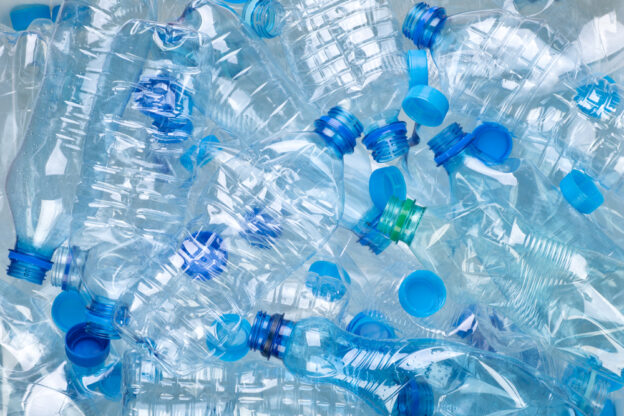Petroleum, that black, gooey stuff we associate with gas stations and car emissions, might seem like a one-trick pony. But step aside, because this fossil fuel is the hidden ingredient in a surprising number of everyday products! Let’s delve into the diverse world of petroleum derivatives, exploring where they come from and how they touch our lives in unexpected ways.
Transportation Titans
First things first: transportation.
Crude oil, the unrefined version of petroleum, undergoes a refining process that separates it into various fractions. Fractions that are separated include gasoline, diesel, kerosene, and bitumen.
Gasoline, the lifeblood of our cars, is a major product, of course. It’s stored in large above-ground tanks at refineries and then distributed through pipelines, trucks, and barges to gas stations. Strict safety regulations and quality control measures ensure safe storage and transportation.
Similar to gasoline, diesel fuel is stored in bulk at refineries and distributed through dedicated pipelines and specialized trucks to gas stations, power plants, and industrial facilities. Diesel fuel keeps trucks and buses rolling, while jet fuel propels airplanes across continents.
Jet fuel is stored in massive tanks at airports and transported via pipelines or specially designed tanker trucks. Stringent quality checks and temperature control are crucial for safe operation of aircraft.
Even liquefied petroleum gas (LPG), better known as propane, finds its way into cooking tanks and portable heaters. It’s stored in pressurized tanks at refineries and then distributed in specialized trucks or railcars to filling stations or directly to industrial users. Strict regulations govern tank design, filling levels, and transportation routes.
Beyond the Pump
But petroleum’s reach extends far beyond the pump. Lighter hydrocarbon fractions become the building blocks for plastics, ubiquitous in packaging, clothing, and countless other items. From the water bottle in your hand to the carpet beneath your feet, there’s a good chance plastic’s DNA contains petroleum. It even infiltrates paints, solvents, and fertilizers, playing a hidden role in agriculture and construction.
Plastics
Produced in pellet form at petrochemical plants and stored in large silos or bags before being shipped to manufacturers for conversion into various products. Efficient logistics are crucial due to the high volume and lightweight nature of plastic pellets.
Paints and Solvents
Stored in sealed containers at manufacturing facilities and distributed in trucks or railcars to distributors and end users. Stringent regulations address flammability and environmental concerns.
Fertilizers
Stored in bulk at production facilities and then transported in specialized bags or containers by trucks, trains, or ships to agricultural regions. Careful handling is required to prevent spills and contamination.
Natural Gas, an Unsung Hero
Natural gas, another close cousin of petroleum, deserves its spotlight. This lighter, cleaner-burning fossil fuel heats homes, generates electricity, and fuels some vehicles. Compressed natural gas (CNG) is gaining traction as a transportation alternative, offering lower emissions than gasoline. Butane and propane, familiar names in lighter fluid and camping stoves, also originate from petroleum refining.
Natural gas: Transported through vast networks of underground pipelines from production fields to processing plants and then onwards to distribution pipelines that reach homes, power plants, and industrial facilities. Compressor stations maintain pressure along the pipeline network.
Compressed natural gas (CNG): Stored in high-pressure tanks at dedicated fueling stations and transported in specially designed trucks. Regular inspections and safety protocols are essential due to the compressed nature of the gas.
Butane and Propane: Stored in pressurized tanks at refineries and distributed in cylinders, tanks, or pipelines to homes, businesses, and industrial users. Safety regulations govern tank design, filling procedures, and transportation.
The Asphalt Jungle and Beyond
The asphalt that paves our roads? Yep, petroleum products. Roofing shingles, lubricants, and paraffin wax? Check, check, and check. Even petroleum jelly, that handy salve for cuts and scrapes, has petroleum roots. The list goes on, with surprising connections emerging between this fossil fuel and everyday items.
- Asphalt: Produced at refineries and stored in heated tanks to maintain its flowable state and transported in insulated trucks or railcars to paving sites, with careful temperature control to prevent solidification.
- Roofing shingles: Manufactured from asphalt and other materials and stored in bundles at distribution centers before being delivered to construction sites. Proper stacking and weather protection are crucial to maintain shingle quality.
- Lubricants: Stored in tanks or drums at manufacturing facilities and then distributed in sealed containers by trucks or ships to distributors and end users. Inventory management and quality control are essential for optimal performance.
- Petroleum jelly: Produced from refined petroleum and typically stored in plastic containers at manufacturing facilities before being distributed to stores and consumers. Strict sanitation and quality control measures are in place.
Understanding the diverse world of petroleum products is key to navigating the complex energy landscape. While its role in our lives is undeniable, acknowledging its environmental impact is crucial for shaping a more sustainable future. So, the next time you pump gas or marvel at a plastic toy, remember — petroleum’s reach extends far beyond the station forecourt, and the choices we make today will determine the energy landscape of tomorrow.
Pro-Gas LLC | Powering Progress Responsibly
The journey through the world of petroleum products has showcased its undeniable impact on our lives. From fueling our vehicles to shaping the materials around us, petroleum’s versatility is evident. However, as we strive for a cleaner future, acknowledging its environmental impact becomes crucial.
This is where Pro-Gas steps in. We understand the complexities of the energy landscape and are committed to delivering reliable, cleaner-burning solutions. By choosing Pro-Gas for facility services, you not only power your life but also contribute to a more sustainable future. We offer expert advice, efficient delivery, and top-notch customer service, ensuring a seamless experience.
Reach out today to learn more about how Pro-Gas Services can help you power your life more responsibly (979) 764-5330. Together, let’s pave the way for a cleaner tomorrow.





